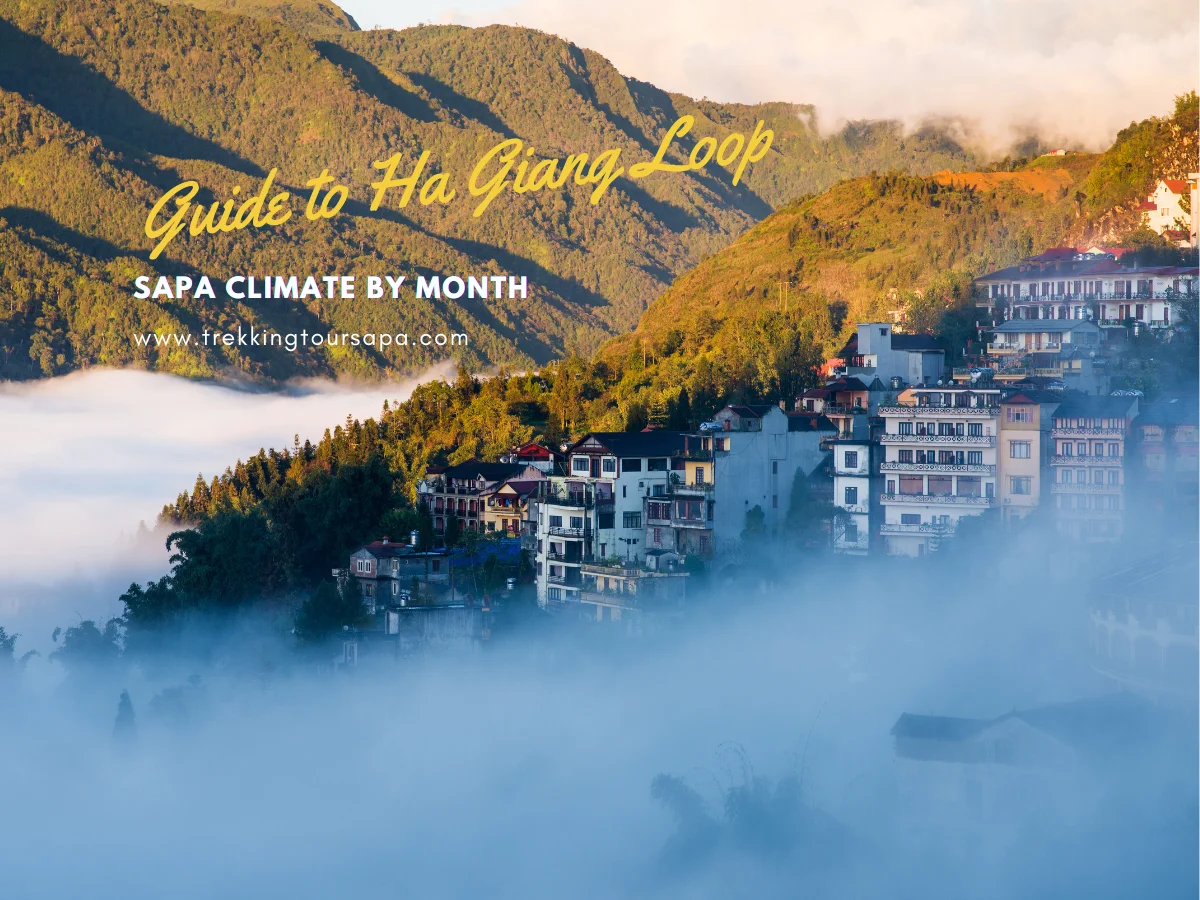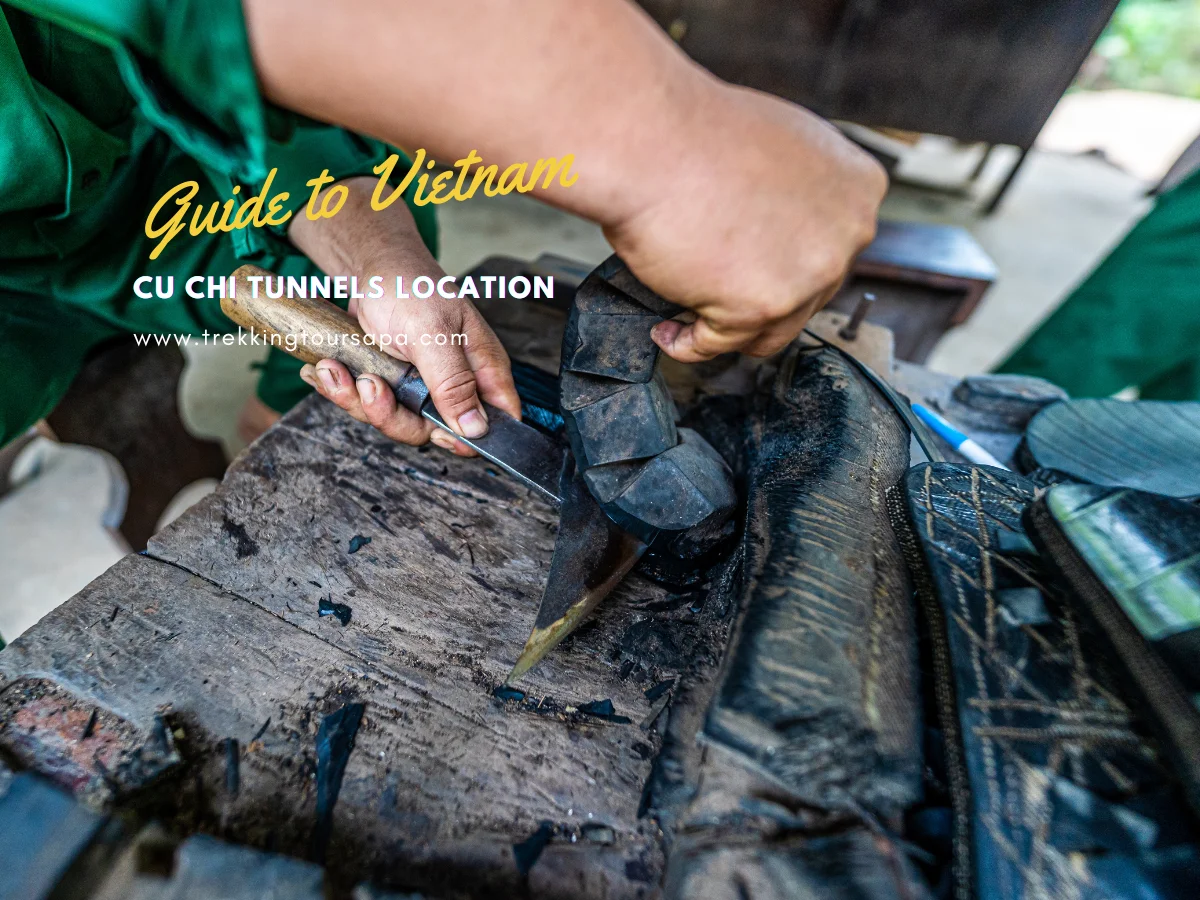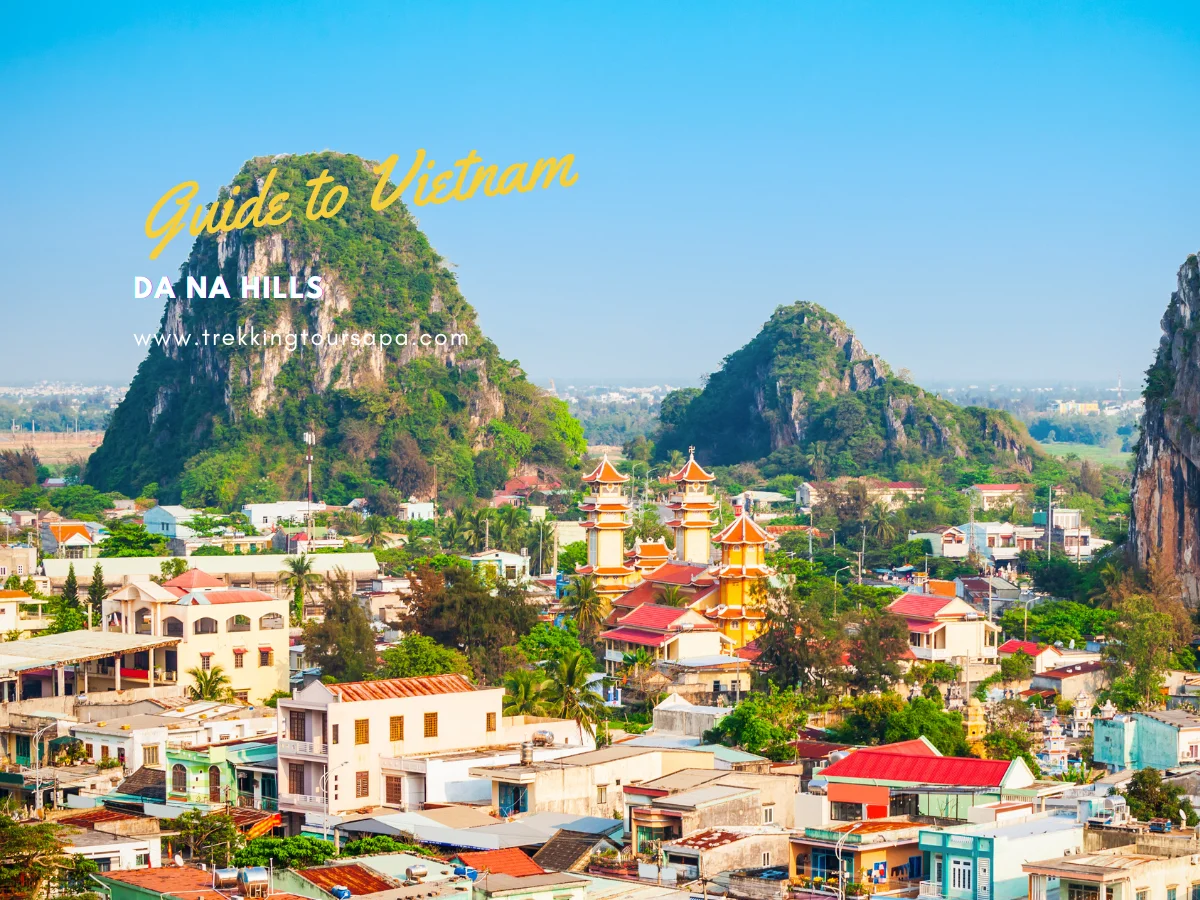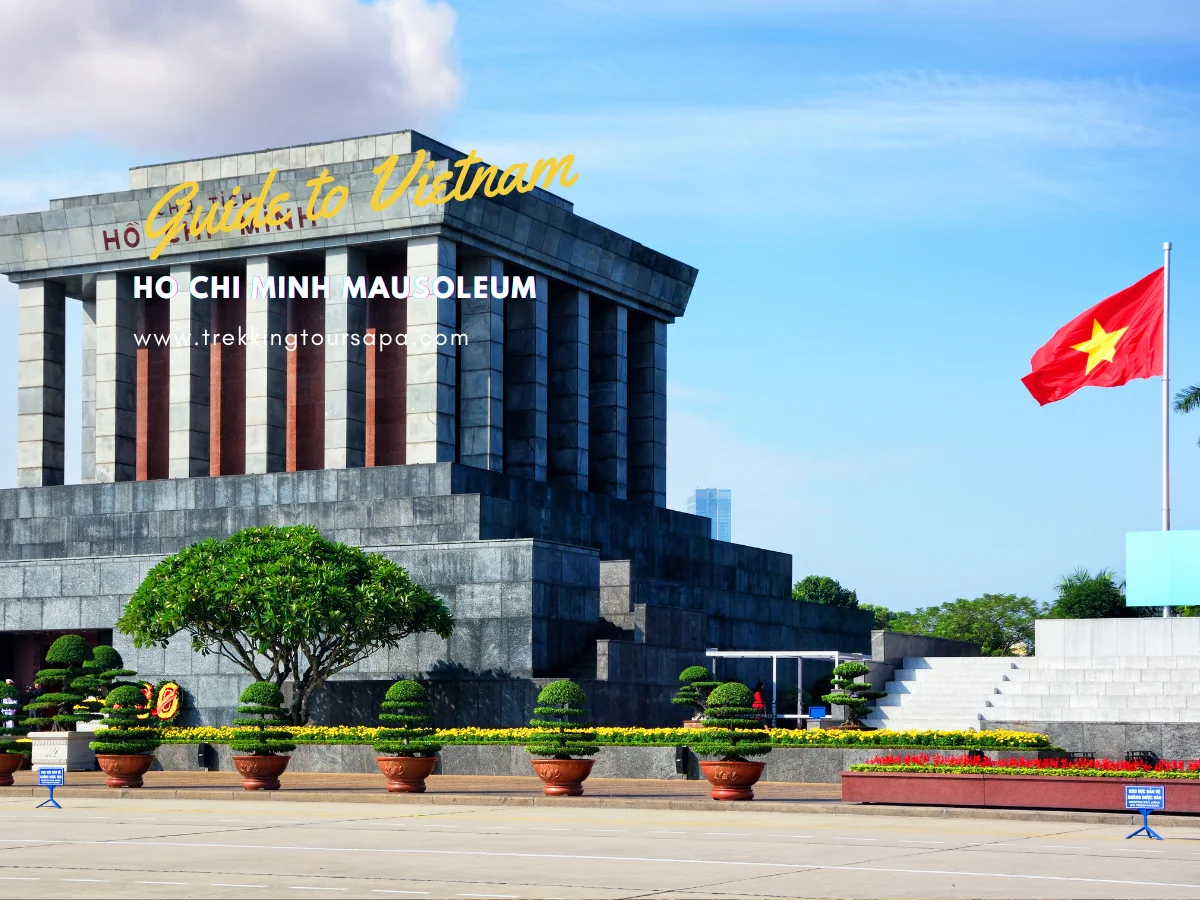As seasoned wanderers seeking new adventures, we often recount striking landscapes or vibrant cultures, but how often do we consider the climates that cradle these experiences? In Sapa, Vietnam, the sapa climate by month is a tapestry woven from foggy mornings, sunlit valleys, and an evergreen ambiance — but what makes this region’s weather in sapa so enticingly unique? Let us unfold for you a comprehensive sapa weather guide, revealing the rich sapa seasonal variations and sapa annual weather patterns that beckon travelers to its misty peaks.
Whether you’re planning to conquer the trails of Fansipan Mountain or indulge in the serenity of terraced rice paddies, understanding Sapa’s monthly climate nuances is as thrilling as the journey itself. Each month gifts us different hues of climate-painted canvases, and, in the grander scheme, a perfectly surprising year-round destination emerges. Join us as we unveil Sapa’s climatic secrets, ensuring your travel story is graced with the right weather backdrop. And now, visualize the splendor:
Key Takeaways
- Lock in the essentials for traversing Sapa’s diverse annual weather patterns.
- Chart your course with our detailed insights into sapa climate by month.
- Optimize your adventure with a timely sapa weather guide.
- Immerse in the cultural tapestry, underscored by sapa seasonal variations.
- Anticipate and embrace the ever-changing weather in Sapa for a trip that transcends expectations.
Table of Contents
ToggleDiscover the Diverse Climate of Sapa
Welcome to the enchanting town of Sapa, where each season paints a new portrait of weather across the highland terrain. Our journey through Sapa’s dynamic climes unfolds against the remarkable backdrop of Vietnam’s northwest mountains, revealing why a visit here feels like a different experience every time. We’re not just entranced by the region’s beauty; we’re here to decode the ever-changing Sapa weather conditions that shape such an unforgettable escape.
Imagine a place where tropical weather cozies up to alpine fresh air—an alluring fusion that Sapa pulls off with style. Here, the Sapa temperature averages invite you to leave behind the hustle of urban living for a refuge nestled among the clouds, offering a respite of temperate breezes and poignant green valleys throughout the year. And yes, the Sapa climate chart confirms it’s no urban myth—a perfect haven does exist in Southeast Asia.
For those planning their sojourn, here’s an insightful peek into the rhythms of Sapa’s annual weather dance:
| Month | Temperature Average (°F) | Weather Condition |
|---|---|---|
| January | 46 – 59 | Chilly with Clear Skies |
| April | 58 – 70 | Breezy and Mildly Warm |
| July | 60 – 73 | Humid with Rain Showers |
| October | 55 – 68 | Crisp Autumn Air |

Studying the Sapa climate chart is more than academic—it’s a way to embrace the town’s spirit fully. Whether you’re threading through misty trails in June or basking in the cooler sun of December, the myriad Sapa weather conditions invite us to suit up and dive heart-first into its myriad moods.
We invite you to explore further, knowing that Sapa’s lavish landscape, draped in nature’s most comfortable climate quilt, awaits your every step. Let’s wrap ourselves in Sapa’s warmth, shall we?
Unlocking Sapa Temperature Averages
We understand that planning the perfect trip to Sapa, Vietnam, revolves around finding that sweet spot when the climate is just right. Well, our detailed sapa weather guide is tailored to help you pinpoint the best time to visit Sapa and what to expect in terms of sapa temperature averages.
All About Sapa’s Seasonal Temperature Shifts
As we dive into the heart of Sapa’s climate, it’s evident that this region is characterized by its temperate nuances, boasting a variation from a cool 10°C (50°F) to a more balmy 22°C (71.6°F). These fluctuations define the region’s dry and wet seasons, painting a landscape that is ever-changing and vibrant. The temperature takes a gradual climb from the cooler January days to reach its peak warmth around April, setting the stage for a comfortable exploration of this picturesque area.
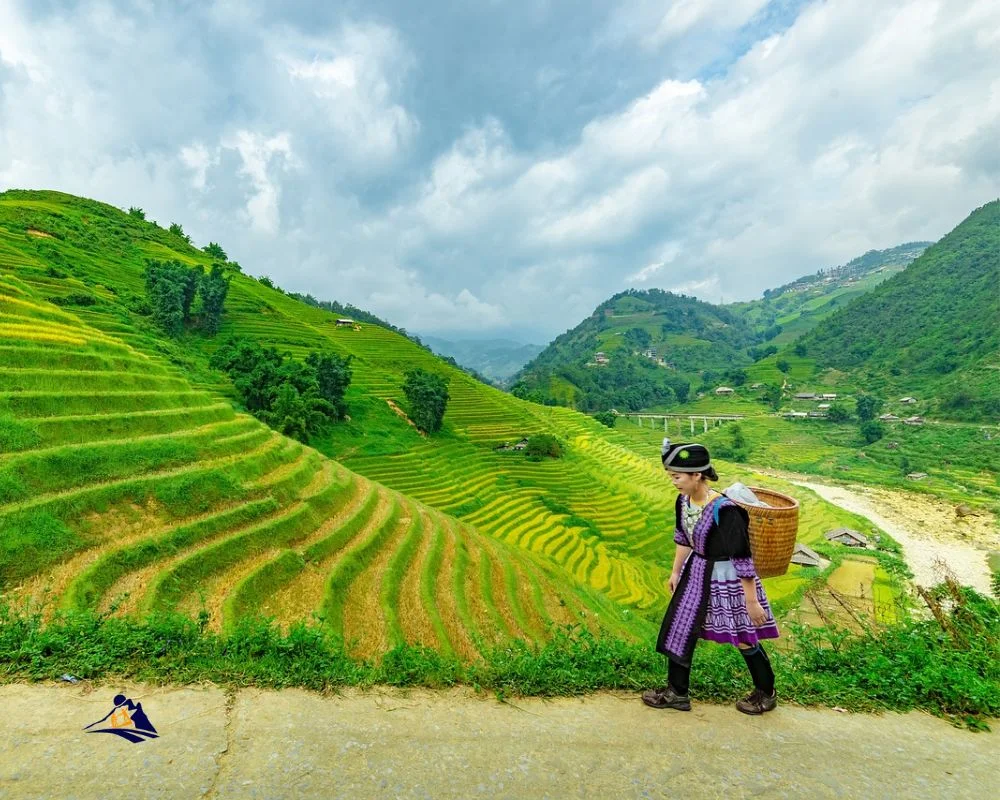
Preparing for Sapa’s Temperature Extremes
When outfitting for Sapa, versatility is key. The weather can oscillate between sudden downpours and bright, sunny days, irrespective of the season. It’s essential to come prepared with layers that adapt as easily as the weather does. Light jackets, waterproof attire, and comfortable shoes should be staples in your travel wardrobe, ensuring you’re armed to embrace the full splendor of Sapa’s diverse climate in comfort.
Here’s a breakdown of sapa temperature averages laid out in an easy-to-digest format, giving you a monthly snapshot of what to expect climate-wise:
| Month | Average Low (°C/°F) | Average High (°C/°F) | Weather Characteristic |
|---|---|---|---|
| January | 10°C / 50°F | 15°C / 59°F | Chilly with possible frost |
| February | 11°C / 51.8°F | 15°C / 59°F | Cold mornings, occasional warm days |
| March | 13°C / 55.4°F | 18°C / 64.4°F | Mild weather, ending winter chill |
| April | 15°C / 59°F | 22°C / 71.6°F | Warm, pleasant days |
Bearing in mind these temperature averages, you’ll be well-equipped to meld seamlessly into the ebb and flow of Sapa’s seasons. Whether you’re planning to trek through the lush valleys in April or cozy up in a café in January, understanding the Sapa temperature averages is your key to a trip that’s as flawless as the region’s natural beauty.
Sapa 1 Day Tours
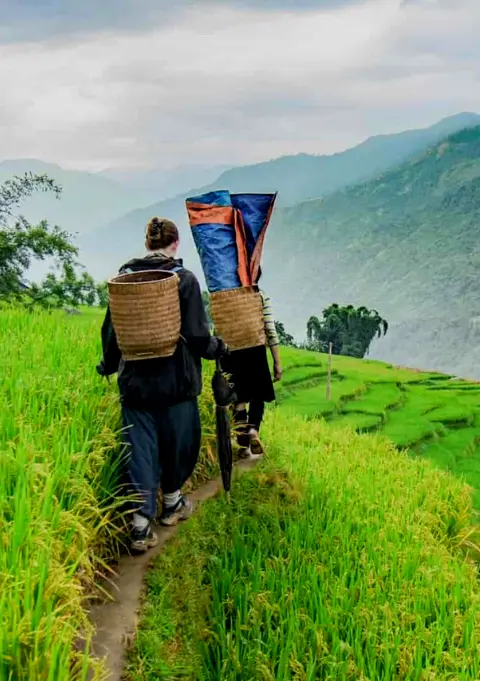
- 1 day experience
- Moderate to challenging
- Cultural immersion & active adventure
- Rice fields, valleys & villages
- Private tours
- Vegan-friendly
Sapa 2 Day Tours
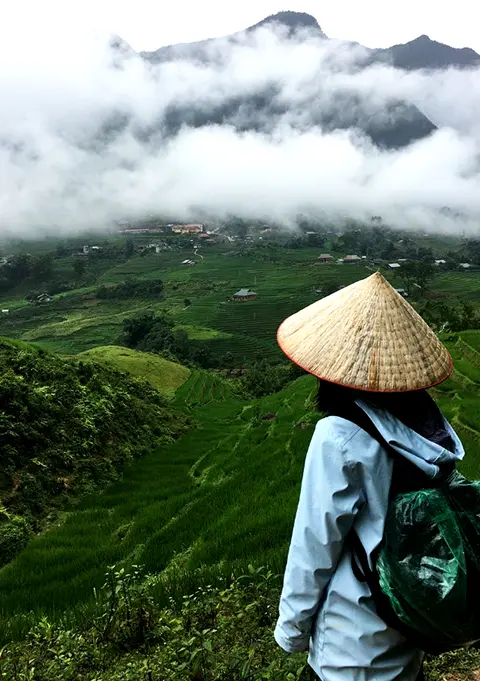
- 2 days 1 night experience
- Moderate to challenging
- Cultural immersion & active adventure
- Mountains, valleys, rice fields and villages
- Private tours
- Vegan-friendly
Sapa 3 Day Tours
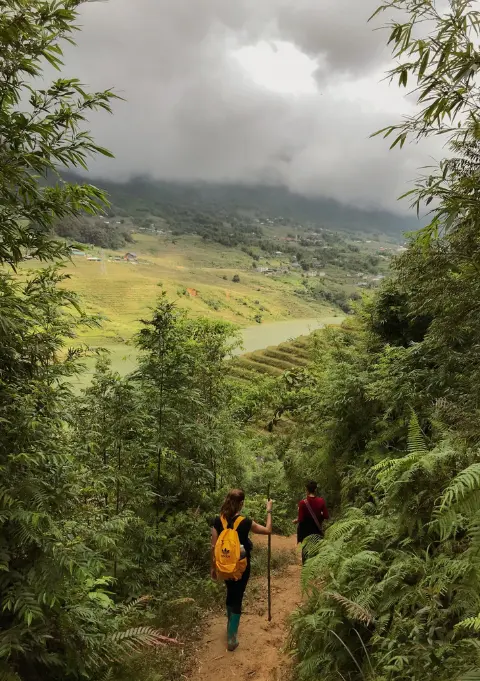
- 3 days 2 night experience
- Moderate to challenging
- Cultural immersion & active adventure
- Mountains, valley, rice fields & villages
- Private tours
- Vegan-friendly
Sapa 4 Day Tours
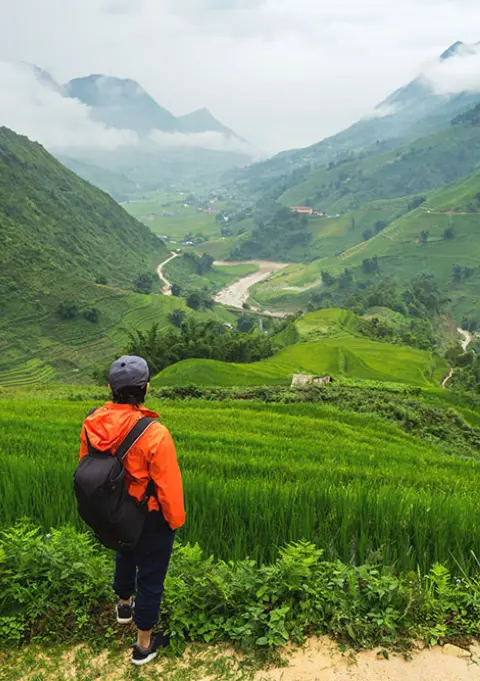
- 4 days 3 night experience
- Moderate to challenging
- Cultural immersion & active adventure
- Mountains, valleys, rice fields & villages
- Private tours – Less Touristic
- Vegan-friendly
Sapa Weather Conditions and Seasonal Highlights
When we explore the vibrant region of Sapa, it’s essential to understand the sapa weather conditions that can change with each month. The area is often visited for its extraordinary sapa weather by month, with each period presenting unique experiences due to significant sapa seasonal variations. Through this understanding, we can better plan our outdoor adventures and cultural engagements to fully enjoy all that Sapa has to offer.
As we delve into the monthly weather patterns, we find that summer rainfalls can vary, often between 60mm and 150mm, making it ideal for the lush, green landscapes that photographers and nature enthusiasts adore. The winter months present the opposite, with the driest conditions of the year, averaging around 30mm. This unique variation serves as a testament to Sapa’s diverse climate, and why packing for your trip requires a careful glance at the weather charts.
| Month | Average Precipitation (mm) | Seasonal Highlights |
|---|---|---|
| January – February | ~28 | Misty mornings and clear skies |
| March – May | 30 – 100 | Blooming flowers and warming days |
| June – August | 120 – 200 | Lush landscapes and vibrant terraces |
| September – October | 160 – 200 | Rich harvest season with cooler weather |
| November – December | ~22 | Crisp air and early snowfall possibilities |

We witness powerful monsoon winds during May and September, where the downpours can be abrupt and relentless, requiring us to always have a waterproof jacket at hand. But even amid these heavy showers, the beauty of terraced rice fields brimming with the season’s yield can be a sight to behold!
Knowing the weather intricacies of Sapa helps us prepare both logistically and mentally, ensuring that whether we find ourselves amidst a refreshing drizzle or a surprise sunny spell, our adventure through Sapa remains unfazed and utterly memorable.
Embracing Sapa’s Frosty Winters
As we explore the highlands of Southeast Asia, one of the most captivating experiences waits for us in the wintry embrace of Sapa. Known for its dazzling rice terraces and mountainous landscapes, it’s the weather in Sapa that truly brings out the magic during the colder months. From the sparkling frost to the occasional snowflakes that dance through the air, Sapa’s winters hold a special allure.
When the temperatures drop, we witness the transformation of the lush greenery into a serene, frost-covered wonderland. The frost in Sapa is more than just frozen dew; it’s a mystical phenomenon that blankets the town in a unique beauty rarely found in tropical regions. It’s not just the views that are impacted by the Sapa climate by month, but the entire experience of this quaint Vietnamese town.
| Month | Average High | Average Low | Frost Occurrence |
|---|---|---|---|
| December | 15°C (59°F) | 4°C (39.2°F) | Common |
| January | 14°C (57.2°F) | 3°C (37.4°F) | Very Common |
| February | 15°C (59°F) | 3.5°C (38.3°F) | Common |

With each winter month, the cold currents from the North bring a crisp chill to the air. During these times, we find ourselves wrapped in layers, sipping on hot Vietnamese coffee, and taking in the sight of foggy peaks—a scene that is as invigorating as it is tranquil. Although Sapa is a renowned location throughout the year, it’s this frosty season that presents a unique charm, encouraging us to explore and relish the chills that come with winter in an otherwise tropical climate.
Springtime Bloom and Mild Climates in Sapa
When the spring climate in Sapa begins to warm the terraced hillsides, we find ourselves amid an idyllic setting that truly embodies the best time to visit Sapa. There’s something undeniably enchanting about the way the sapa weather conditions transition during this season, enriching the landscape with colors and vitality.
The Beauty of Sapa’s Cherry Blossoms
As the cherry blossoms unfurl their pink and white petals against the rugged panorama, we’re reminded of the unique spring climate in Sapa that fosters such splendid natural displays. These blooms are not merely a sight for the eyes; they’re a herald of the festive spirit awakening within the local communities and the array of cultural experiences awaiting travelers.
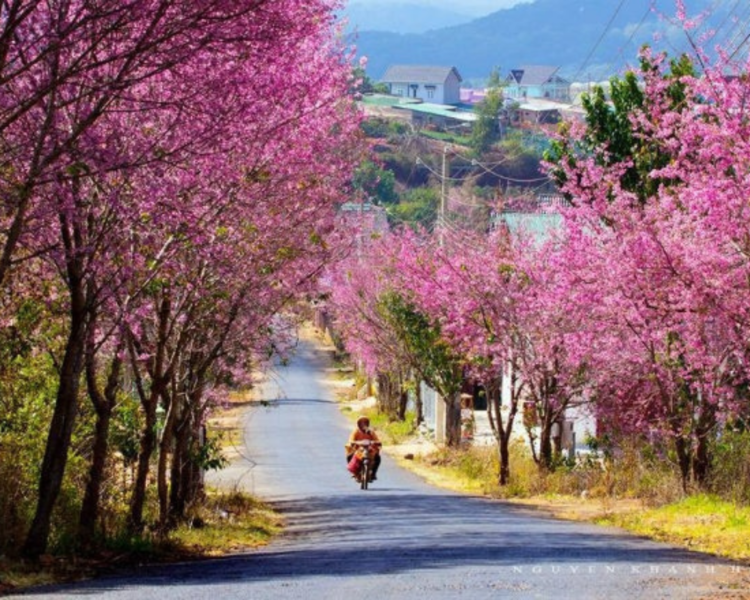
Spring Trekking in the Misty Mountains
Spring also invites us to lace up our hiking boots and embark on journeys through the misty mountains of Sapa. The agreeable weather provides the ideal backdrop for trekking, unveiling the lush valleys and ethnic villages shrouded in the mountain mist, which whispers tales of adventure at every turn. The mildness of the season spares us the extremes, ensuring that every step we take is one of comfort and awe.
| Month | Average Temperature | Notable Events |
|---|---|---|
| March | 15°C – 18°C | Beginning of Cherry Blossom Season |
| April | 17°C – 20°C | Peak of Cherry Blossoms & Cultural Festivals |
| May | 18°C – 22°C | End of the Dry Season & Pre-Monsoon Treks |
In essence, spring in Sapa blesses us with a climate that is as refreshing as it is inviting, offering an array of activities that let us immerse ourselves in both nature and local heritage. It’s a remarkable time that allows us to witness Sapa’s beauty in full vigor, setting the scene for memories that linger long after our return.
Sapa 1 Day Tours

- 1 day experience
- Moderate to challenging
- Cultural immersion & active adventure
- Rice fields, valleys & villages
- Private tours
- Vegan-friendly
Sapa 2 Day Tours

- 2 days 1 night experience
- Moderate to challenging
- Cultural immersion & active adventure
- Mountains, valleys, rice fields and villages
- Private tours
- Vegan-friendly
Sapa 3 Day Tours

- 3 days 2 night experience
- Moderate to challenging
- Cultural immersion & active adventure
- Mountains, valley, rice fields & villages
- Private tours
- Vegan-friendly
Sapa 4 Day Tours

- 4 days 3 night experience
- Moderate to challenging
- Cultural immersion & active adventure
- Mountains, valleys, rice fields & villages
- Private tours – Less Touristic
- Vegan-friendly
Understanding the Monsoon Influence on Sapa Climate by Month
When considering a visit to Sapa, it’s crucial for us to appreciate how the monsoon in Sapa dramatically reshapes the region’s climate from month to month. During the summer, the monsoon season is in full swing, gifting Sapa with bountiful rain that awakens verdant terraced rice fields and lush landscapes. Yet, this is a double-edged sword, as the monsoon also bears the risk of sudden flash floods and unexpected landslides.
Let’s dive into a sapa weather guide that highlights the impact of the monsoon on the local climate. Sapa’s precipitation during these months nourishes the land, which is essential for the local agriculture and sustenance of the rich cultural traditions tied to rice cultivation. However, for those of us eager to trek through Sapa’s magnificent landscapes, gearing up with waterproof clothing and sturdy footwear is non-negotiable.
Here’s a quick rundown of the typical monsoon patterns we might encounter:
- June to August: Heavy showers with the warmest temperatures.
- September to November: Gradual reduction in rainfall, marking the transition to cooler weather.
Armed with knowledge about the sapa climate by month, we can better plan our travel adventures, ensuring that they are not only exhilarating but also safe. The monsoon in Sapa is a testament to nature’s power—both its life-giving abundance and its unpredictable might.

Adventuring through Sapa during the monsoon is akin to watching nature paint its masterpiece—with each raindrop, the landscape transforms, becoming even more breathtaking.
We should never underestimate the value of being well-prepared; decent rain gear is as vital as our curiosity to explore. Understanding the nuances of sapa climate by month truly enriches our experience and opens up a world of seasonal beauty in one of Vietnam’s most captivating locations.
Planning Your Visit: Best Time to Travel to Sapa
When we ponder the best time to visit Sapa, it’s essential to align our travel plans with what we wish to experience in this remarkable region. Sapa enchants in every season, with each offering unique charms. To assist you in planning the trip that best fits your desires, let’s explore the highlights of Sapa’s seasonality.
Why Sapa’s Autumn Attracts Photographers and Trekkers Alike
The transition from summer to autumn in Sapa showcases a spectacle of golden hues as the rice terraces ripen—an unforgettable visual feast. The sapa seasonal variations bring about a transformation, with vibrant green shifting to a warm amber palette, making it a paradise for photographers and nature enthusiasts. Trekkers too find this season ideal with its comfortable climate and clear skies offering pristine mountain views. Autumn truly captures the essence of Sapa’s pastoral beauty.

Winter Tourism: Festivals and Snowy Peaks
Winter brings its own allure to Sapa, with cultural festivities that offer a glimpse into the heart of local traditions. The colder months might introduce us to frosty mornings and, if we’re fortunate, the rare sight of snow blanketing the rugged landscape. This time of year is marked by sapa annual weather patterns that can transform the region into a winter wonderland, especially appealing to those yearning to witness a different side of Vietnam. Moreover, the region’s festivities provide a warm backdrop to the cool weather, creating memorable experiences for every traveler.
Ultimately, the best time to visit Sapa greatly depends on what you want to experience. For crisp air, golden fields, and culturally-rich journeys, autumn is your season. For cooler weather, unique festivals, and the chance to see mountaintop snow, consider a winter visit.
Sapa 1 Day Tours

- 1 day experience
- Moderate to challenging
- Cultural immersion & active adventure
- Rice fields, valleys & villages
- Private tours
- Vegan-friendly
Sapa 2 Day Tours

- 2 days 1 night experience
- Moderate to challenging
- Cultural immersion & active adventure
- Mountains, valleys, rice fields and villages
- Private tours
- Vegan-friendly
Sapa 3 Day Tours

- 3 days 2 night experience
- Moderate to challenging
- Cultural immersion & active adventure
- Mountains, valley, rice fields & villages
- Private tours
- Vegan-friendly
Sapa 4 Day Tours

- 4 days 3 night experience
- Moderate to challenging
- Cultural immersion & active adventure
- Mountains, valleys, rice fields & villages
- Private tours – Less Touristic
- Vegan-friendly
Annual Rainfall and Humidity Patterns in Sapa
When considering a trip to Sapa, it’s essential for us to comprehend the sapa weather by month due to its profound effect on travel plans. In this vibrant destination, sapa climate by month is a narrative told through its humidity and rainfall. The unique weather patterns not only dictate the landscape’s beauty but also influence the activities we can partake in during our visit.
Particularly notable are the sapa humidity levels, which consistently shape the region’s climate. During the April to September period, we often witness humidity soar to 82%, harmonizing with the verdant growth that defines Sapa’s summer. These higher humidity levels also bring about an uptick in precipitation – a consideration for those of us looking to hike or enjoy the outdoor splendor of this mountainous wonderland.
In contrast, from October to March, Sapa’s air presents a crisper feel with average humidity maintaining a moderate range between 70-75%. We find this period more accommodating for those of us who prefer drier explorations. This knowledge of sapa weather by month and corresponding sapa humidity levels is a tool we can utilize to ensure our wardrobe and itinerary align with the expected climate conditions, guaranteeing a delightful experience any month we choose to visit.
“Sapa’s climate, dictated by nature’s rhythm, demands respect and careful planning from all who wish to immerse themselves in its enchanting realm.”
- Understanding Sapa’s humid summers
- Enjoying drier and cooler autumn to spring transition
- Planning travel wardrobe according to humidity and rainfall

As we weave through the patchwork of Sapa’s weather tapestry, each strand tells a story of seasonal splendor. Whether draped in the glisten of summer rains or shrouded in the mists of a tingling cool breeze, Sapa calls to us – beckoning exploration through every droplet and gust that pattern its soil.
Decoding Sapa’s Climate Chart for Travelers
As we delve into the particulars of Sapa’s climate chart, a clearer picture emerges for those planning their journey. This climatic blueprint lays bare the trends and patterns, revealing a tapestry woven with cool summers and surprisingly mild winters, interrupted by generous monsoonal offerings. The high altitude of Sapa, significantly at the apex of Fansipan Mountain, introduces a notable chill, a stark contrast to the warmer town nestled below.
Insights from Sapa’s Monthly Climate Data
The sapa weather guide is a treasure trove of monthly data, each figure contributing to a comprehensive understanding of what awaits in Sapa. This information is not just numerical; it tells a story of provisional forecasts, allowing travelers to visualize their sojourn amidst the mountain mists and sunny highland afternoons.
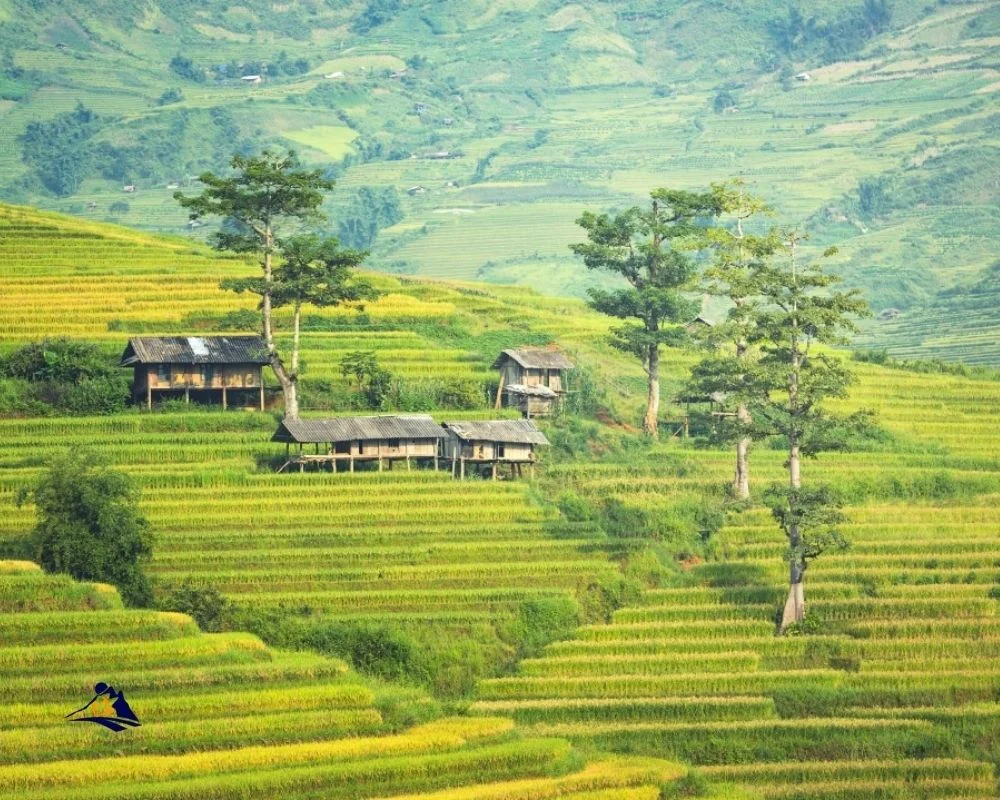
Preparation Tips Based on Sapa’s Weather Chart
Equipped with the actionable knowledge from the sapa climate chart, we can now strategize our packing. Will it require a layer for the brisk mountain air or rain gear to navigate through the season’s downpours? Perhaps, lightweight attire for the occasional warmth? The data from the chart is our guide, steering our choices towards comfort and readiness.
| Month | Average High (°C) | Average Low (°C) | Precipitation (mm) | Notes |
|---|---|---|---|---|
| January | 11 | 4 | 25 | Brisk, clear skies, occasional frost |
| February | 13 | 6 | 30 | Start of floral bloom |
| March | 15 | 9 | 45 | Warmer days, misty mornings |
| April | 18 | 12 | 90 | Onset of monsoon, lush landscapes |
| May | 20 | 15 | 180 | Peak of monsoon, vibrant greenery |
| June | 21 | 17 | 210 | Warm, wet, rice terraces flourish |
| July | 20 | 17 | 250 | High humidity, afternoon showers |
| August | 20 | 17 | 240 | Continued rains, cool nights |
| September | 19 | 15 | 160 | Tapering monsoon, harvest season |
| October | 17 | 11 | 70 | Drier, golden rice paddies |
| November | 15 | 8 | 40 | Cool, occasional drizzle |
| December | 12 | 5 | 20 | Cold, clear, winter festivities |
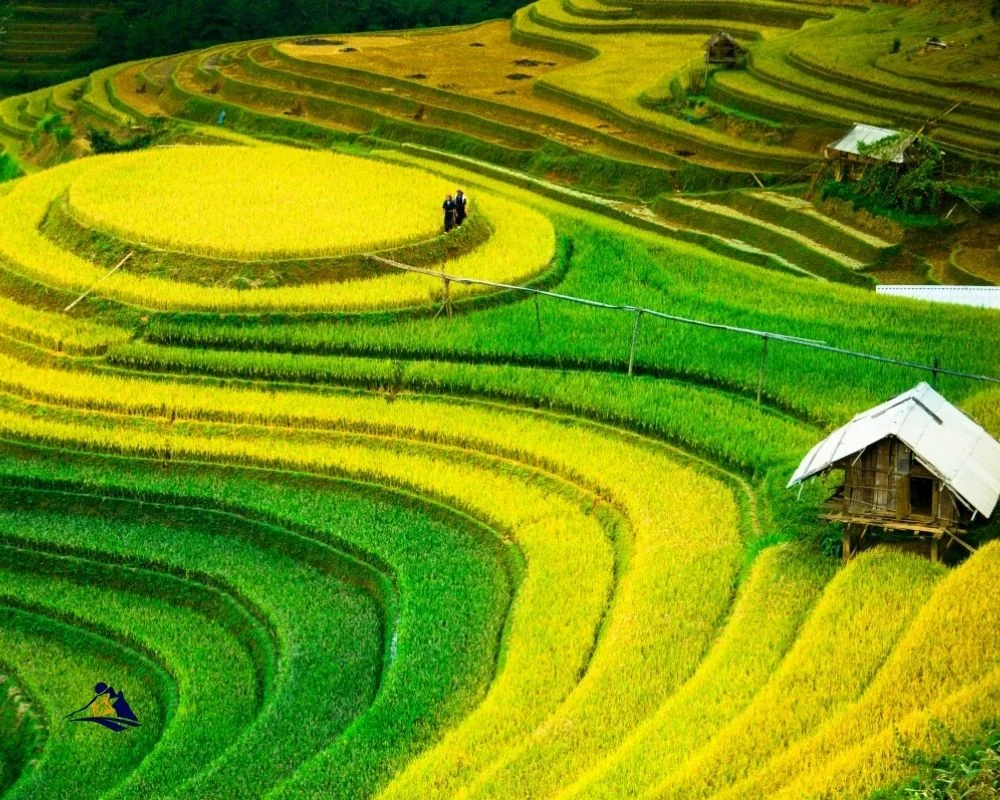
Heeding the insights provided by the weather in Sapa, we can not only choose the perfect time to embark on our adventure but also select activities that resonate with what the climate has to offer. Those looking to trek through the terraced fields or indulge in photography will find the chart a vital tool for planning an unforgettable experience.
Witnessing Sapa’s Unique Weather Phenomena
Embracing the Sapa annual weather patterns provides us with an exceptional journey through its diverse meteorological spectacles. The Sapa unique climate characteristics are not just conversational fodder but a living experience for those who walk its mountainous terrain. When we discuss Sapa weather conditions, it’s not uncommon to find ourselves in awe of its unpredictable and captivating weather phenomena.
For instance, while snow is an extraordinary occurrence in much of Vietnam, Sapa occasionally adorns itself in a delicate blanket of snow, setting a scene that juxtaposes with the country’s tropical stereotype. These sudden temperature drops that lead to frost and snow are charming surprises for visitors seeking unusual natural events in Southeast Asia. Moreover, the impact of typhoons, typically from June to early November, is a testament to the dynamic and sometimes tempestuous nature of Sapa’s climate.
While here, we might witness an array of weather peculiarities unique to this region. Below is an illustrative table of the typical range of climatic experiences one may encounter while exploring Sapa’s enchanting landscapes:
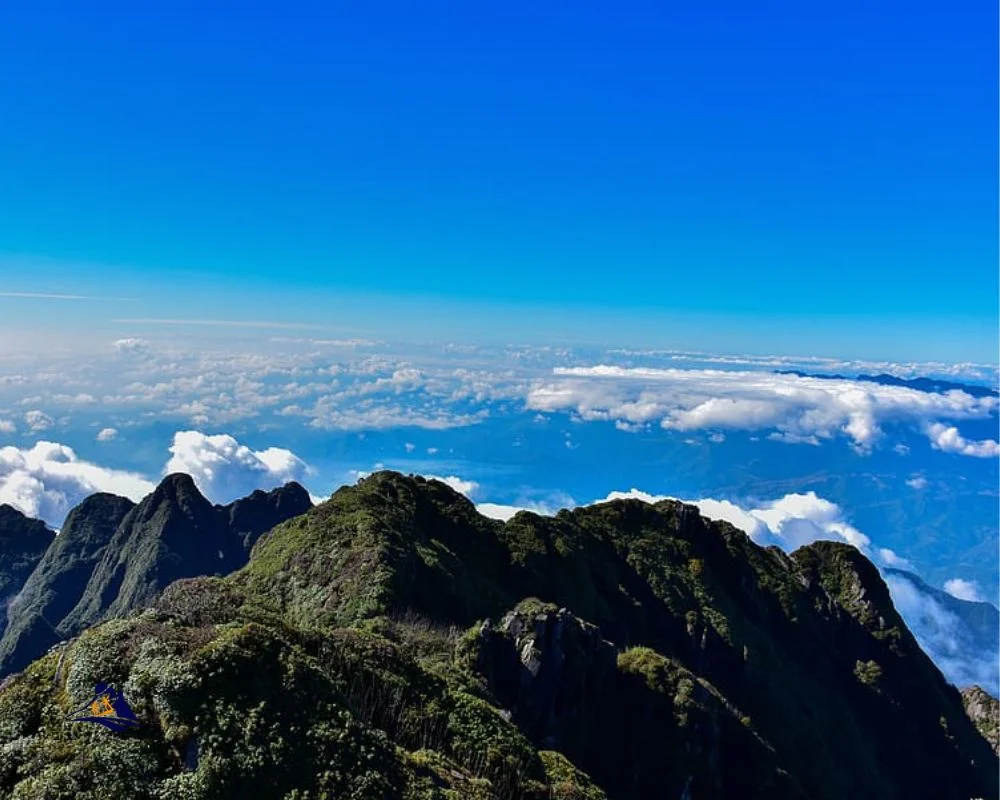
| Month | Weather Phenomenon | Typical Experience |
|---|---|---|
| January – February | Snowfall (Rare) | A winter wonderland amidst tropical Vietnam. |
| March – May | Mild Temperatures | Perfect for trekking through blooming flora. |
| June – November | Typhoons | Thrilling, powerful rains and winds. |
| December | Sudden Temperature Drops | Crisp air and clear skies offering tranquil views. |
To fully appreciate the wonder that Sapa bestows upon us, being well-prepared is essential. Staying informed about the Sapa weather conditions before and during our visit ensures we can delight in these natural occurrences while remaining secure amidst its diverse weather patterns. This ability to witness such unique climate characteristics indeed makes Sapa a fascinating destination for lovers of nature and the elements.
Sapa: Where Culture and Climate Intersect
The rich tapestry of Sapa’s heritage is vividly colored by its climate, where each shift in the sapa climate by month reflects deeply in the way of life of its residents. Our journey in this beautiful region is not just a travelogue but a deep dive into the sapa cultural immersion, allowing us to witness firsthand how the local customs and agricultural practices are influenced by the weather in Sapa.
Throughout the year, the weather in Sapa weaves a narrative that local communities have followed for generations. In the spring, the blooming of lush flora sets the stage for a season of renewal and celebration. The summer months, while bringing increased rainfall, awaken the terraced rice paddies that cascade down the mountainside—a testament to how the local communities thrive under the monsoon’s nurturing hand. As they cultivate their culture through these rice fields, visitors can indulge in the climate’s gifts with every step on the emerald stairways.

Come autumn, the air is crisp, and the harvest season provides a bustling atmosphere that is palpable. The locals adorning their traditional attire, stand as a sight to behold against the backdrop of golden hues from the rice fields. Winters roll in with a misty curtain, and festivals surge through the towns, a vibrant contrast to the serene frost-clad peaks.
“Sapa’s soul is her seasons; in the heartbeat of her climate, you’ll find the essence of her culture.” – a local saying that captures the essence of Sapa’s lifeways.
In our travel diaries, we earmark not just the places we visit, but we also note the harmony between climate and culture. As we move through Sapa’s calendar, we are greeted by an ever-changing landscape that serves as a reminder of how adaptive and resilient the local communities are—a profound cultural immersion that adds depth to our travel experience.
- Spring: Cherry blossom viewing and cultural festivities
- Summer: Rice planting and village homestays
- Autumn: Harvest season and photography tours
- Winter: Festivals and cozy mountain retreats
In conclusion, our time in Sapa is more than a getaway—it is a foray into a world where the ebb and flow of climate shape a rich cultural landscape, and where each month paints a different picture of life in Sapa. Embracing this nexus of weather and culture allows us not just to be spectators, but to be part of the story that Sapa tells to the world.
Sapa 1 Day Tours

- 1 day experience
- Moderate to challenging
- Cultural immersion & active adventure
- Rice fields, valleys & villages
- Private tours
- Vegan-friendly
Sapa 2 Day Tours

- 2 days 1 night experience
- Moderate to challenging
- Cultural immersion & active adventure
- Mountains, valleys, rice fields and villages
- Private tours
- Vegan-friendly
Sapa 3 Day Tours

- 3 days 2 night experience
- Moderate to challenging
- Cultural immersion & active adventure
- Mountains, valley, rice fields & villages
- Private tours
- Vegan-friendly
Sapa 4 Day Tours

- 4 days 3 night experience
- Moderate to challenging
- Cultural immersion & active adventure
- Mountains, valleys, rice fields & villages
- Private tours – Less Touristic
- Vegan-friendly
Adaptable Travel: Navigating Sapa’s Variable Weather
When we embark on our Sapa journey, the key to embracing its splendor lies in adapting to the weather in Sapa. To ensure that unexpected showers or cool spells don’t dampen our spirits, staying abreast of the current sapa climate by month is paramount. With that knowledge, we can pack layers to combat the chill or waterproof attire to remain unphased by monsoon rains. Let’s not forget, a comprehensive sapa weather guide is our best travel companion, offering foresight into Sapa’s fog, mist, and humidity trends and making our travel plans as flexible as the mountain roads that wind through this picturesque landscape.
Below we have outlined a simple yet effective approach to ensure our travels in Sapa are comfortable, enjoyable, and full of adventure:
- Check the weekly forecast: Before departure and during our trip, we should monitor the latest weather predictions to be one step ahead of mother nature.
- Layers are essential: By wearing clothes that can be easily added or removed, we’re prepared for the varying temperatures we may encounter from dawn till dusk.
- Waterproof gear: A reliable raincoat and waterproof backpack cover can shield us from sudden downpours, keeping us dry as we explore.
In the following table, we present a snapshot of what to expect from Sapa’s weather by month and how to prepare accordingly:
| Month | Expected Weather | Preparation Tips |
|---|---|---|
| January | Cool and possibly frosty | Thermal layers, hats, and gloves |
| April | Warmer with potential rain showers | Lightweight clothing with a waterproof jacket |
| July | Warm with monsoon rains | Breathable clothing with rain gear |
| October | Mild with decreased rainfall | Comfortable layers and light rain protection |

By approaching our travel plans with flexibility and respect for the local climate, we weave ourselves into the rhythm of Sapa’s natural beauty. The journey becomes not just about the places we visit, but also an enlightened way to witness the harmony between culture and nature in this extraordinary region. So let’s pack our bags with wisdom, don the right gear with zest, and set off to the mountains with hearts ready to embrace the shifting skyscape of Sapa.
Conclusion
As we’ve journeyed together through the unique climatic tapestry of Sapa, we’ve discovered that every month paints a new picture of this Vietnamese wonder. Immersed in the beauty of sapa climate by month, we get to experience the essence of nature’s variety—from the subtle warmth of spring to the crisp air of winter, each period offers its own allure. Sapa’s seasonal variations are not just a meteorological event but a vibrant stage for nature’s exhibition, influencing the rhythms of life and culture embedded in the highlands.
Summing Up the Splendors of Sapa’s Year-Round Climates
The splendor of Sapa is a year-round phenomenon, with every season contributing to the region’s extraordinary character. Embodying resilience and beauty, the Sapa annual weather patterns brush the landscape with hues and sensations that beckon travelers from all corners. Whether it’s feeling the gentle spring zephyr amidst flowering valleys or witnessing autumn’s golden terrace tapestry, Sapa’s ambience is a treasure trove for the senses.
Final Tips for Making the Most of Sapa’s Weather
To fully embrace what Sapa has to offer, it’s essential to meld with its ever-shifting skies and temperatures. Sapa’s weather conditions request adaptability and anticipation from its visitors. Pack layers, be open to marvels that each day may bring, and approach Sapa with a spirit ready to spontaneously dance with the clouds or bask in the sun. By respecting the climate’s moods and planning with sapa temperature averages in mind, we ensure that our journey through this picturesque corner of Vietnam isn’t just a visit—it’s a vivid embrace of life’s ebbs and flows.
Sapa 1 Day Tours

- 1 day experience
- Moderate to challenging
- Cultural immersion & active adventure
- Rice fields, valleys & villages
- Private tours
- Vegan-friendly
Sapa 2 Day Tours

- 2 days 1 night experience
- Moderate to challenging
- Cultural immersion & active adventure
- Mountains, valleys, rice fields and villages
- Private tours
- Vegan-friendly
Sapa 3 Day Tours

- 3 days 2 night experience
- Moderate to challenging
- Cultural immersion & active adventure
- Mountains, valley, rice fields & villages
- Private tours
- Vegan-friendly
Sapa 4 Day Tours

- 4 days 3 night experience
- Moderate to challenging
- Cultural immersion & active adventure
- Mountains, valleys, rice fields & villages
- Private tours – Less Touristic
- Vegan-friendly
